By Heather Mahady, UK Sailmakers International’s New General Manager
UK Sailmakers is committed to Supporting Sustainable Sailing so that the ocean can be enjoyed by all for generations to come. We are taking action globally to minimize the environmental impact from our sail manufacturing processes to help protect the world’s oceans. One example of this initiative is that UK Sailmakers is buying a majority of the laminates used in X-Drive® sails from Challenge Sailcloth. Challenge uses recycled components which that have all the strength and durability of their predecessors. The new Challenge X-Drive laminates are made with partially recycled yarns and 100% recycled film, which actually has greater UV resistance than virgin films. This is a major step that sailmakers can do to reduce the amount of plastic waste that washes into our oceans.
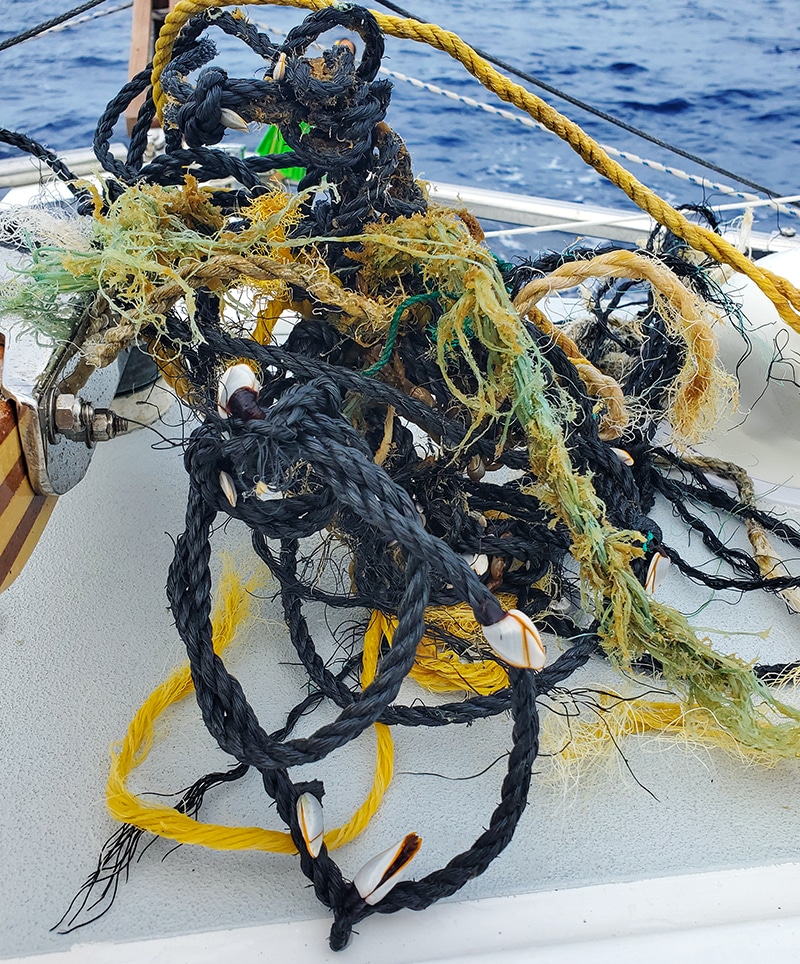
Some of the trash pulled from the sea compared to perfect ocean sailing conditions during a Hawaii race.
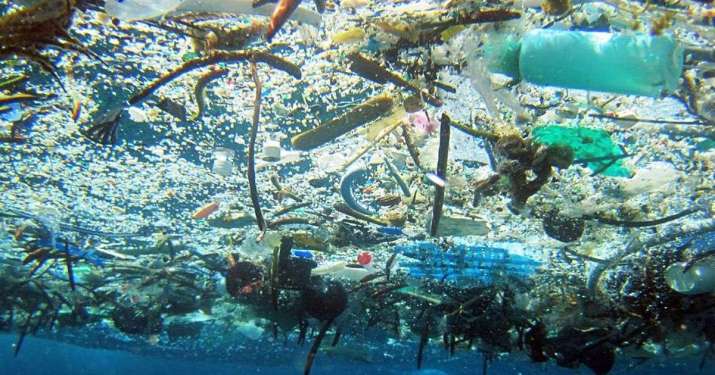
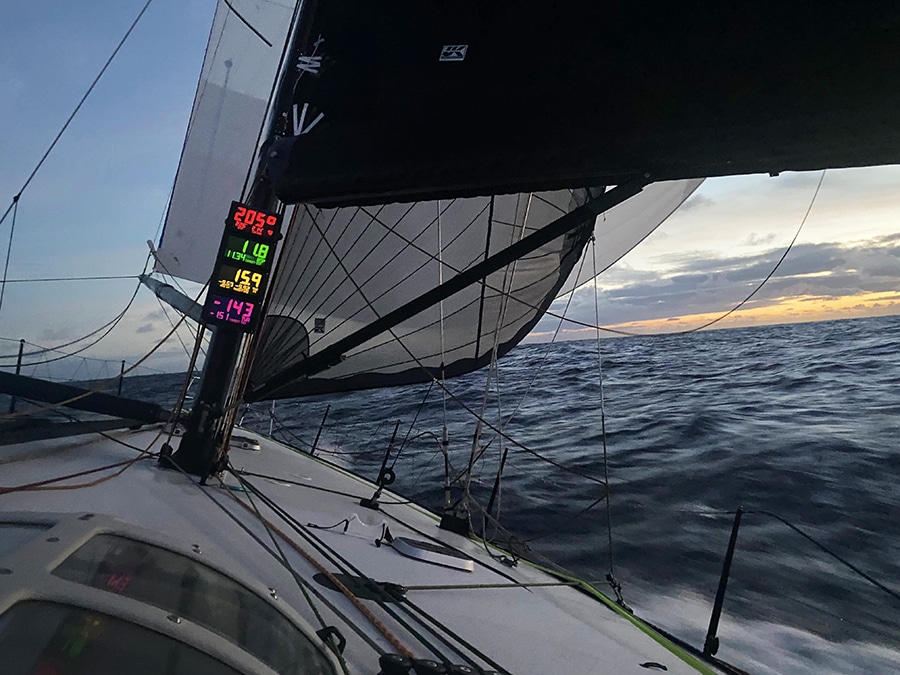
We at UK Sailmakers Northwest in Sidney, British Columbia, know firsthand about the large patches of garbage floating in the North Pacific Gyre that are obstacles to sailors who have to navigate through the flotsam during races to Hawaii such as the Pacific Cup, TransPac and Vic Maui. JOY RIDE, a J/122E based out of the Pacific Northwest, reported their surprise at the volume of debris during the 2018 Vic Maui Race and raised concerns asking, “How are our leviathan friends faring in a sea of fish nets, plastic cups and other urban waste?” In the same year OXOMOXO, a Swan 39 from Seattle, stopped to free a distressed sea turtle trapped in a discarded fishing net. The risk of entanglement for sailboats themselves, especially sailing in breezy nighttime conditions, also cannot be dismissed.
During the 2018 Pacific Cup, Stuart Dahlgren, the owner of UK Sailmakers Northwest encountered a shocking amount of debris. Stuart said, “While racing on my Santa Cruz 70, WESTERLY, we had to endure something like seven back downs to free debris from our keel and rudder. We managed to snag a pretty big chunk of commercial fishing net around the keel that almost required a swim to free. Other items we snagged included a huge chunk of molded radiator hose, various bits of line, plastic bags and small pieces of net.” In 2022, Stuart said that he and his crew saw a lot of small garbage floating on the surface — mostly gear from commercial fishing, floats, and plastic — but thankfully didn’t catch any of it. Oliver McCann and Brendan Huffman, from the UK Sailmakers Los Angeles, are passionate about environmental conservation. Oliver graduated from UCLA with a Master’s Degree in Environment and Sustainability, and has spent more than 40 years serving Southern California Sailors from their Marina del Rey location. Brendan, a lifetime sailor said, “The debris I pulled off of my rudder last year during the Singlehanded TransPac Race had been in the water so long that it had an ecosystem ready to invade somewhere else as an invasive species”.
Sustainable Sailing Green Boating Tips
- Require crew members to bring re-fillable water bottles to reduce the number of single use plastic bottles.
- Pack food and supplies from home in reusable containers so that there is less garbage produced onboard.
- Use water sparingly at the dock to save electricity used for the transport of water.
- Choose a more eco-friendly antifouling paint. Keep your hull clean by sailing frequently, rather than scrubbing.
- Designate secure trash and recycling receptacles, and ensure that everyone onboard knows of their location.
- Choose biodegradable soaps and reef-safe sunscreens.
- Recycle used fishing line at marina receptacles or your local tackle shop.
- Use a net to scoop up marine debris that can be safely reached while boating or on the docks, and dispose of it properly.
- Use solar panels to reduce your reliance on diesel to charge your batteries.
- Practice responsible fueling and pump-out procedures.
- Participate in marina or beach clean up events near you.
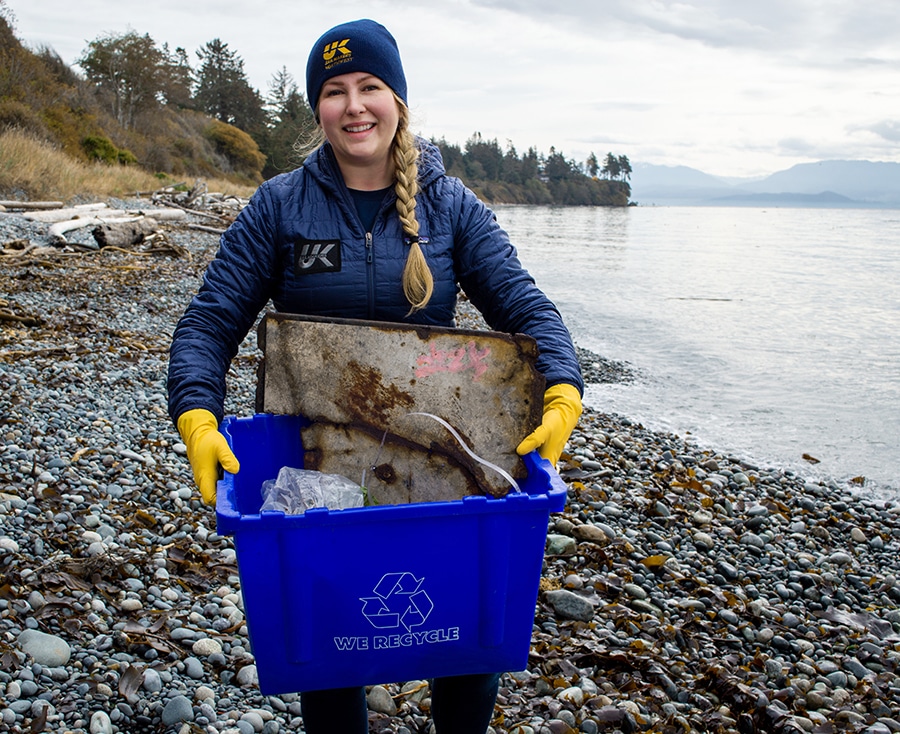
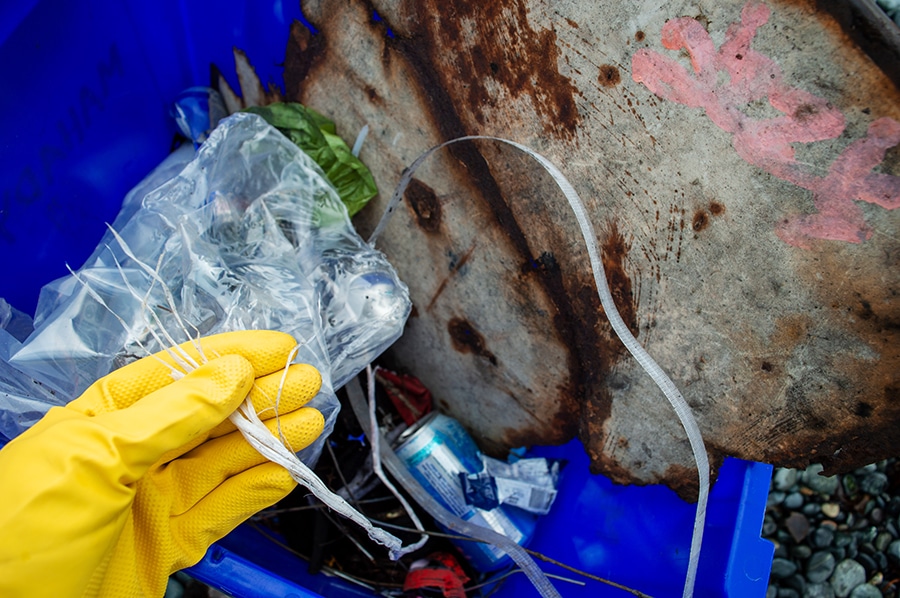
Heather Mahady doing a beach clean up.
Results of more than 10 years of volunteer beach clean-up data collected by the Surfrider Foundation indicates that more than 60 percent of beach debris originated from land-based sources.
During sail production at UK Sailmakers lofts, every effort is taken to minimize waste, including the use of dedicated software to reduce sailcloth off-cuts (waste material) during the cutting process. Innovations, such as zippered luff spinnakers, directly prevent the waterway pollution from yarn or elastic used in typical spinnaker banding techniques. Sailcloth remnants are stored for future sail repairs, for creating duffle bags for local regatta prizes, and more! UK Sailmakers has several new environmental initiatives and partnerships planned for 2023 as we strive to reduce the environmental impact of the sport of sailing and to protect the ocean and planet for future generations of sailors.

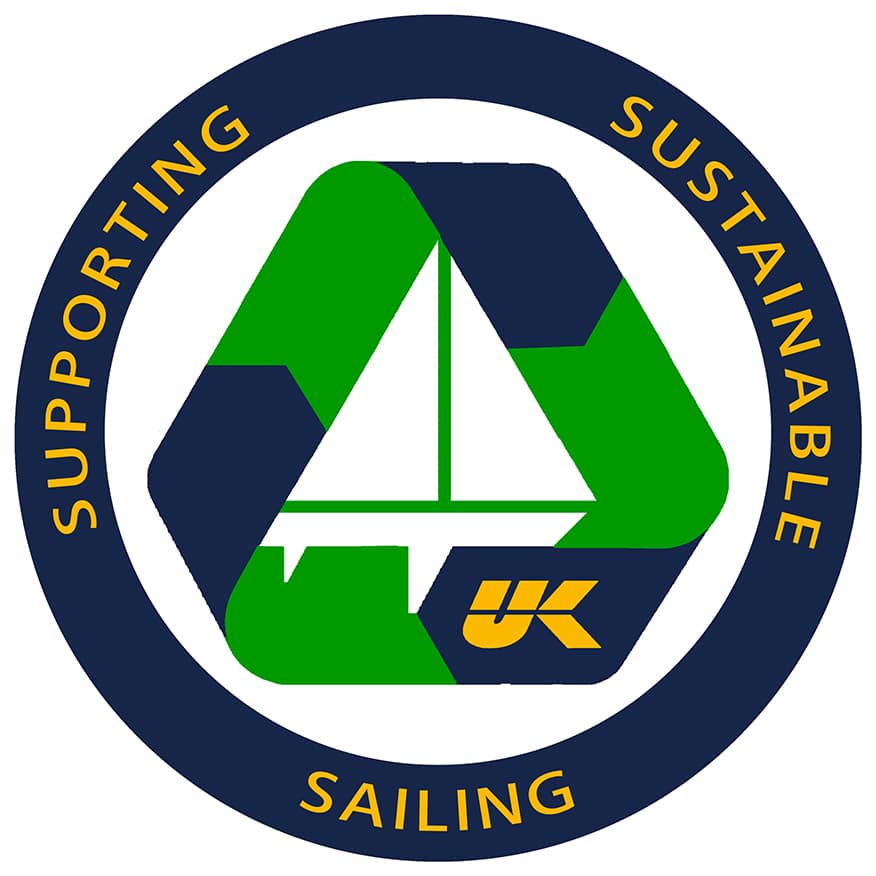


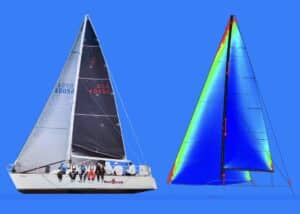
I see you say that 60% of waste comes from land-based sources. SO, 40% of plastic waste is produce by the SEA???? Dream on get serious and stop using plastic to make sails.